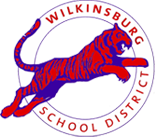Pre-K Counts Curriculum
The Creative Curriculum® for Preschool is one of the nation's leading research-based early childhood programs. It provides a careful balance between teacher-directed and child-initiated learning, emphasizing each child's individual learning style, strengths, and interests.
This fully updated edition incorporates the latest research and best practices in early childhood education, aligning with content standards developed by state agencies and professional organizations. While maintaining its original environmentally-based approach, the curriculum clearly defines the teacher's critical role in connecting content, teaching, and learning.
Assessment & Family Communication
The Creative Curriculum is supported by an online, curriculum-based system that integrates:
- Ongoing assessment of children's development
- Planning and program management tools
- Communication resources for families
- Reporting functions that meet state and federal requirements
The system uses Creative Curriculum Developmental Continuum for Ages 3-5, a valid and reliable assessment instrument. This tool meets all standards set by the National Association for the Education of Young Children (NAEYC) and the National Association of State Early Childhood Specialists in State Departments of Education (NASECS/SDE).
It is a proven tool for:
- Documenting child progress
- Supporting individualized instruction
- Meeting reporting requirements for agencies such as Head Start and the U.S. Department of Education's Office of Special Education Programs (OSEP)
Curriculum Focus Areas

